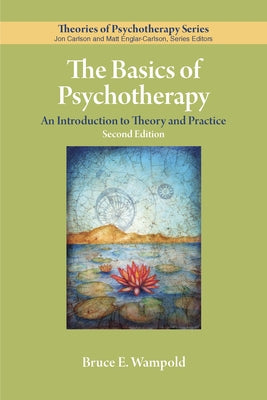Description
Author: Bruce E. Wampold
Publisher: American Psychological Association (APA)
Published: 11/27/2018
Pages: 176
Binding Type: Paperback
Weight: 0.60lbs
Size: 8.90h x 5.90w x 0.40d
ISBN13: 9781433830181
ISBN10: 1433830183
BISAC Categories:
- Psychology | Psychotherapy | General
- Psychology | Movements | General
- Psychology | Education & Training
About the Author
Bruce E. Wampold, PhD, is Professor Emeritus of Counseling Psychology at the University of Wisconsin-Madison, director of the Research Institute at Modum Bad Psychiatric Center in Vikersund, Norway, and chief scientist of Theravue, an electronic platform for deliberate practice and therapist improvement. He is a fellow of the American Psychological Association (Divisions 12, Society of Clinical Psychology; 17, Society of Counseling Psychology; 29, Society for the Advancement of Psychotherapy; and 45, Society for the Psychological Study of Culture, Ethnicity and Race) and is board certified in counseling psychology by the American Board of Professional Psychology. The author of more than 200 books, chapters, and articles related to counseling, psychotherapy, statistics, and research methods, Dr. Wampold also has received awards, including the 2007 Distinguished Professional Contributions to Applied Research Award from the American Psychological Association, the Distinguished Research Career Award from the Society for Psychotherapy Research, and an Honorary Doctorate from Stockholm University. He is general vice-president and president-elect of the Society of Psychotherapy Research. Dr. Wampold has contributed to various areas related to psychotherapy, including relative efficacy of various approaches, therapist effects, the therapeutic alliance, placebo effects in medicine and in psychotherapy, trajectories of change, multicultural competence, and expertise in psychotherapy. His analysis of empirical evidence, which has led to the development of a contextual model from which to understand the benefits of counseling and psychotherapy, is found in The Great Psychotherapy Debate: The Evidence for What Makes Psychotherapy Work (2nd ed., 2015, Routledge). His current work involves using deliberate practice to assist therapists to improve their outcomes.

